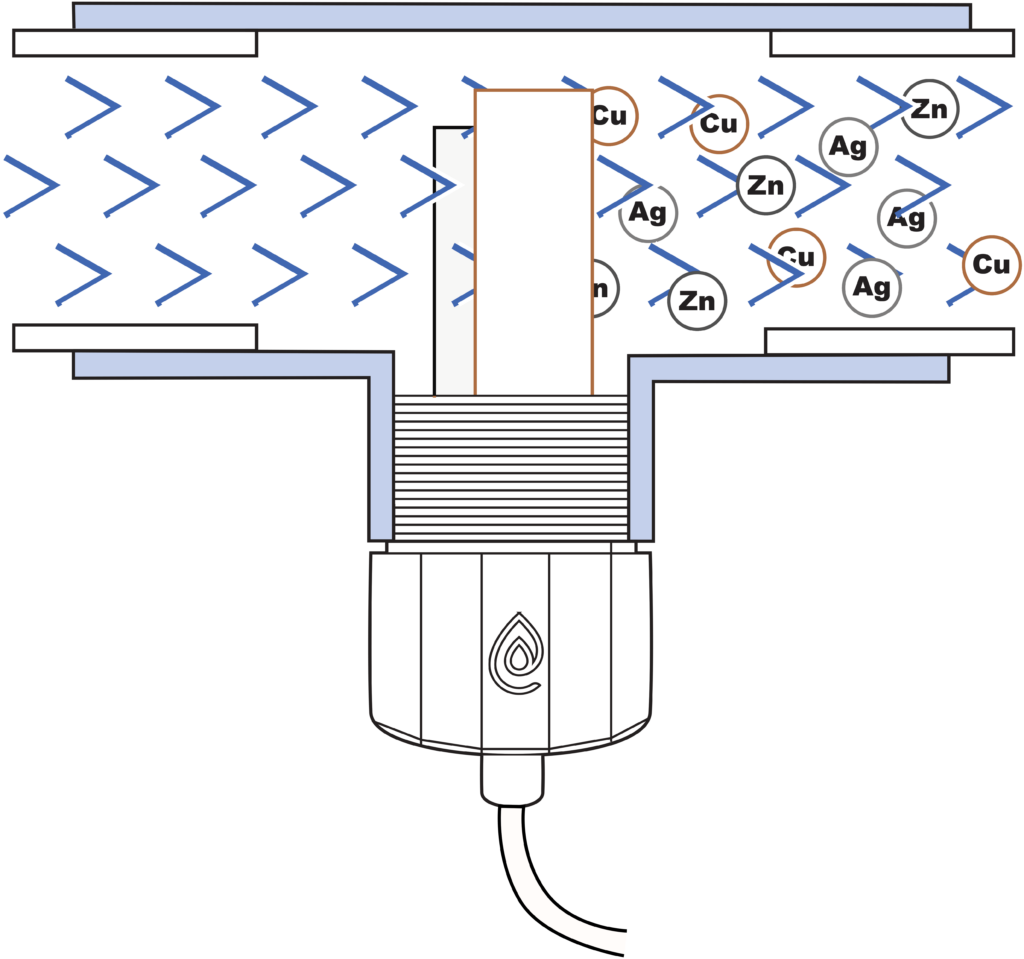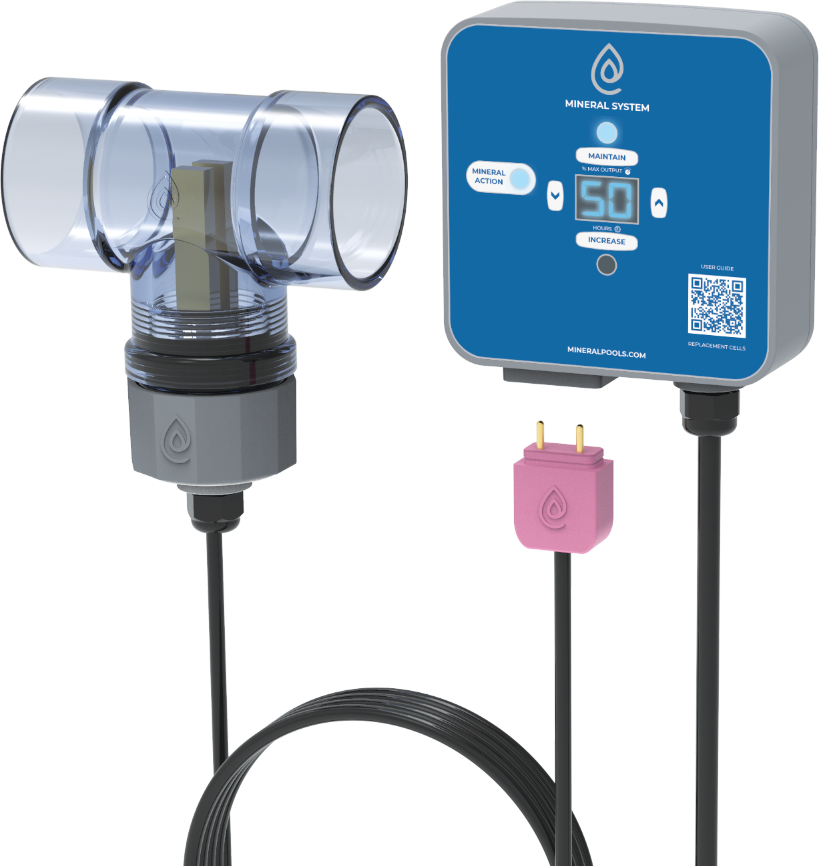Do Pool Ionizers Work?
They might seem like magic, but pool ionizers do work.
Pool ionizers have been around for 40 years. While they have a mixed reputation in the industry, they do what they advertise. However, buying a certified system and using it as directed is essential so you don’t run into any problems.
What is a pool ionizer?
A pool ionizer is an electrical device that hooks into your pool filtration system or floats on the pool surface. An electrical current is passed over one or more electrodes. As the current travels, it carries microscopic particles from the electrodes into the water. The electrodes are made of copper or a metal alloy, including copper, silver, and/or zinc.
What does a pool ionizer do?
Charged particles, or ions, build up in the water. The makeup of the ions and the speed at which they are delivered depend on the pool ionizer’s style and model. Low-cost solar pool ionizers usually use copper, whereas more expensive systems combine copper, silver, and zinc.
Solar ionizers rely on exposure to the sun to generate the electrical current and have a very slow output, even when the sun is shining directly on them. Inline ionizers vary according to the manufacturer but allow for a much faster release of minerals, which speeds up the ionization process.
How does a pool ionizer work?
When the charged mineral ions are released into the water, they contact microscopic organisms like algae and bacteria. The ions penetrate the organisms’ cell walls and disrupt the cellular process, killing algae or bacteria cells. The dead cells clump together and are removed from the water by the filter.

The minerals released by a pool ionizer do not oxidize the water, so they can’t break down organics like lotions and skin cells. This means you must combine a pool ionizer with a reduced chlorine level.

Are pool ionizers worth it?
Pool ionizers are a cost-effective way to assist with your pool water maintenance program. On the low end, solar pool ionizers are often under $100 and will quickly save that amount of money on chlorine alone. However, they require extra work to maintain because you must clean the electrode weekly so it functions properly.
The most expensive and sophisticated pool ionizer still costs less than most other ‘alternative sanitizers,’ such as UV and Ozone. These systems all provide a similar result—they allow you to reduce the chlorine level but do not eliminate it.
Pool ionizers are also less expensive than salt chlorinators, which use salt in the water to generate liquid chlorine. These systems are expensive up front, require periodic salt cell replacement, and can damage pool equipment, surfaces, and landscaping.
Are pool ionizers safe?
Pool ionizers are completely safe using one with the proper electrical and health certifications. Unfortunately, many low-cost solar pool ionizers are available online from questionable manufacturers and sellers. Even most of the robust ones don’t have the required EPA registrations.
While they add copper (and sometimes silver and zinc) into the water, there is no risk of increasing the mineral content in the water to a point where it will be hazardous. The EPA guidelines for drinking water allow for 1.3 ppm of copper, 5 ppm of zinc, and 0.1 ppm of silver. Most pool ionizers recommend a range of 0.2 ppm to 0.4 ppm for the copper to be effective at controlling algae and around 0.02 ppm of silver and zinc. Considering you are unlikely to drink much pool water using a pool or hot tub, these levels are safe for swimming and soaking.
Why does my pool builder/store/service dislike ionizers?
Have you ever walked into a pool store? What do you see? Most likely, there is an area with several rows of chemicals. These range from sanitizers and shocks to water balancing agents like “pH down” and “alkalinity increaser.” At the back of the store, you might see a fancy display of salt chlorinators, UV systems, or ozone generators—all with $1,000+ price tags.
When you use a pool ionizer, you need less chlorine. Minerals are also pH neutral, so the pH and alkalinity stay balanced longer. You are taking that business away from your local pool store.
When you buy a pool ionizer, whether a $100 system from Amazon or a $649 system from thinkminerals.com, you pay much less than what your builder or pool store sells.
Pool ionizers do work
The bottom line is that pool ionizers do indeed work. They have some problems, but they have proven their worth in maintaining crystal-clear water in your pool with less money and less maintenance. Just look at the reviews on Amazon for a solar ionizer or these for the ClearBlue Mineral System. It’s hard to argue with 40 years of happy customers.
Learn about pool maintenance with a pool ionizer
How do pool ionizers compare with saltwater pools?



